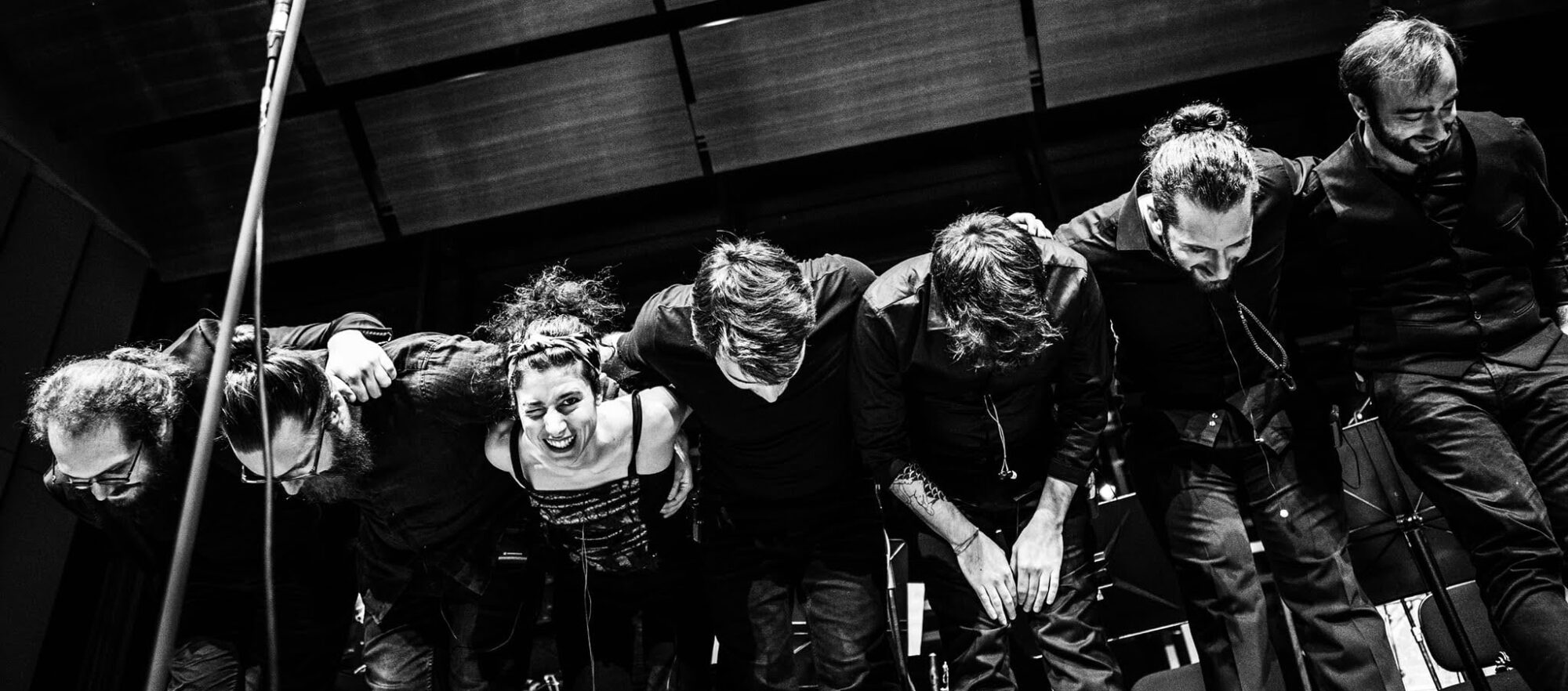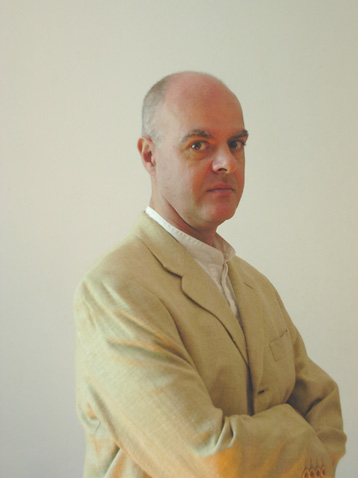Giorgio Colombo Taccani was born in Milan in 1961. He pursued a classical education, graduating from the University of Milan with a degree in Modern Literature under the supervision of Professor Francesco Degrada. His thesis in Music History was devoted to Bruno Maderna’s Hyperion, and won the “Missiroli Prize”, awarded in 1993 by the Town of Bergamo, during a congress devoted to the Italian music theatre in the postwar years.
At the same time he also studied music, obtaining a diploma in Piano performance in 1984 and in Composition in 1989 at the “G. Verdi” Conservatoire in Milan, where he studied under the supervision of Pippo Molino and Azio Corghi.
He subsequently attended the two-year advanced program in Composition taught by Franco Donatoni at the Santa Cecilia Academy of Rome, where he won a S.I.A.E. fellowship; he also took advanced courses with Azio Corghi and György Ligeti and in 1995 was chosen to attend a Summer workshop organized by IRCAM and dedicated to electronic music.
Colombo Taccani’s music has won awards and honorable mentions in competitions of both national and international scope (“Young Composer for Piano”, Roma, 1984; “International Competition of Flute Composition”, Kobe-Shi, Japan, 1987; “Valentino Bucchi”, Roma, 1987 e 1993; “Castello di Belveglio”, 1988 e 1993; “Alpe Adria”, Trieste, 1988; “National Competition for Composition for Wind Instruments”, Livorno, 1991; “Città di Mestre”, 1991; “Quinto Concurso de Composición «Francesc Civil»”, Girona, Spain, 1992; “Concorso «Città di Trieste»”, 1993; “«Gino Contilli» International Competition”, Messina, 1993; “XV Concorso Internazionale «Luigi Russolo»”, Varese, 1993; “2° Concorso Internazionale «2 Agosto»”, Bologna, 1996; “Franco Evangelisti“, Nuova Consonanza, Roma, 1998; “I Concorso Internazionale «Repubblica di San Marino»”, 1999; “I Concorso Internazionale «A Camillo Togni»“, Brescia, 2000; “Lutoslawski Award 2006“, Warszawa, Poland), has been regularly presented in several concert seasons and music Festivals (ISCM “World New Music Days” – Växjö, Sweden, “Sibelius Academy” – Helsinki, “Nuova Consonanza” – Roma, “Gaudeamus” – Amsterdam, “Ferienkurse für Neue Musik” – Darmstadt, Festival “Musica” – Strasbourg, “Hugh Lane Gallery” e “Writers’ Museum” – Dublin, “Fylkingen Festival” – Sweden, “Trieste Prima”, “Biennale di Venezia“, “RAI NuovaMusica“, Società Aquilana dei Concerti – L’Aquila, “Contrasts” – Lviv, Ukraine, Auditorio Nacional de Música – Madrid and also Valparaiso, Brasilia, Athens, Kobe, Nagasaki, Osaka, Yokohama, Auckland, Wellington, Sydney, Reykjavyk, Copenhagen, Sarajevo, Paris, Nantes, Budapest, Berlin, Leipzig, Kyiv, Toulouse, Sofia, Edinburgh, Bruxelles, Alexandria of Egypt and so on), has been broadcast by many national radios; it is published by Edizioni Suvini Zerboni Sugar Music (Milan).
Since 1991 to 2001 he has been working with electronic music at AGON acustica informatica musica – Centro Studi Armando Gentilucci, a electronic music studio in Milan.
He has also been active as a musicologist, focusing primarily on twentieth-century Italian music; he has collaborated with the music magazine “Sonus” and “Auditorium”, both devoted to the Italian music theatre of the Sixties; his paper “Aria, una proposta di analisi” is included in the volume “Bruno Maderna – Studi”, compiled by Mario Baroni and Rossana Dalmonte and published by Edizioni Suvini Zerboni of Milan.
He assisted Azio Corghi during the advanced course of Composition at the “A. Toscanini” Academy in Parma. Since 1992 to 1999 he taught Composition at the Civic School of Music in Milan.
Since 2005 to 2017 he collaborated with the Conducting course (that focuses primarily on contemporary repertoire) taught by Giorgio Bernasconi and Arturo Tamayo at the Conservatorio della Svizzera Italiana, Lugano.
Since 1999 he teaches Composition at “G. Verdi” Conservatory in Turin


